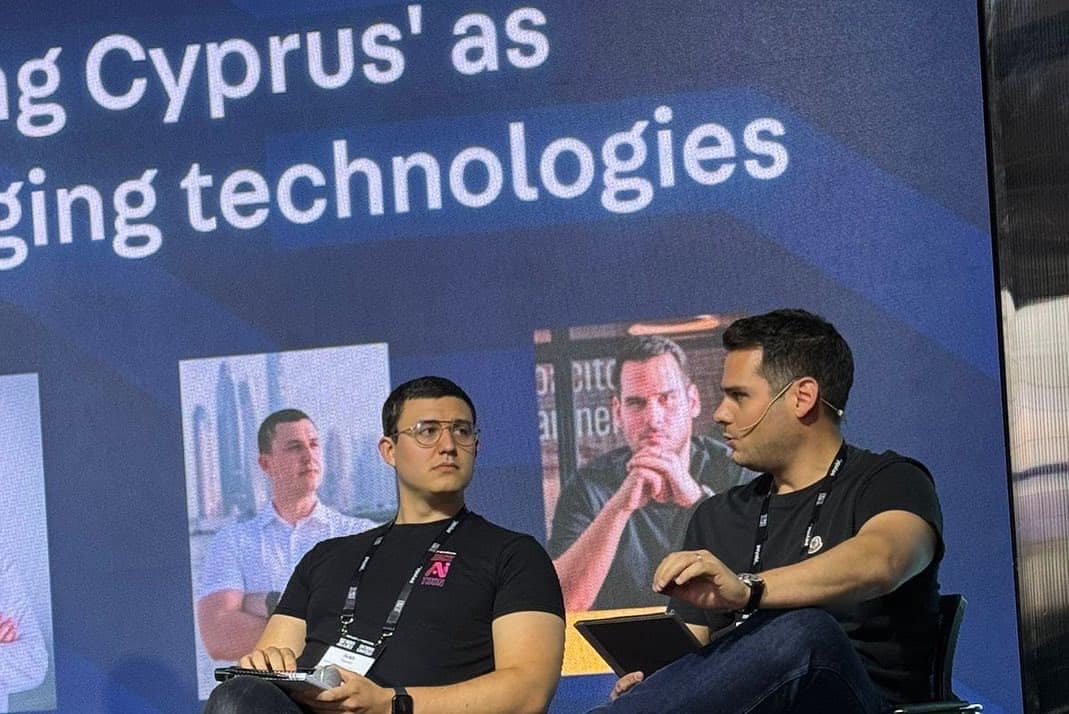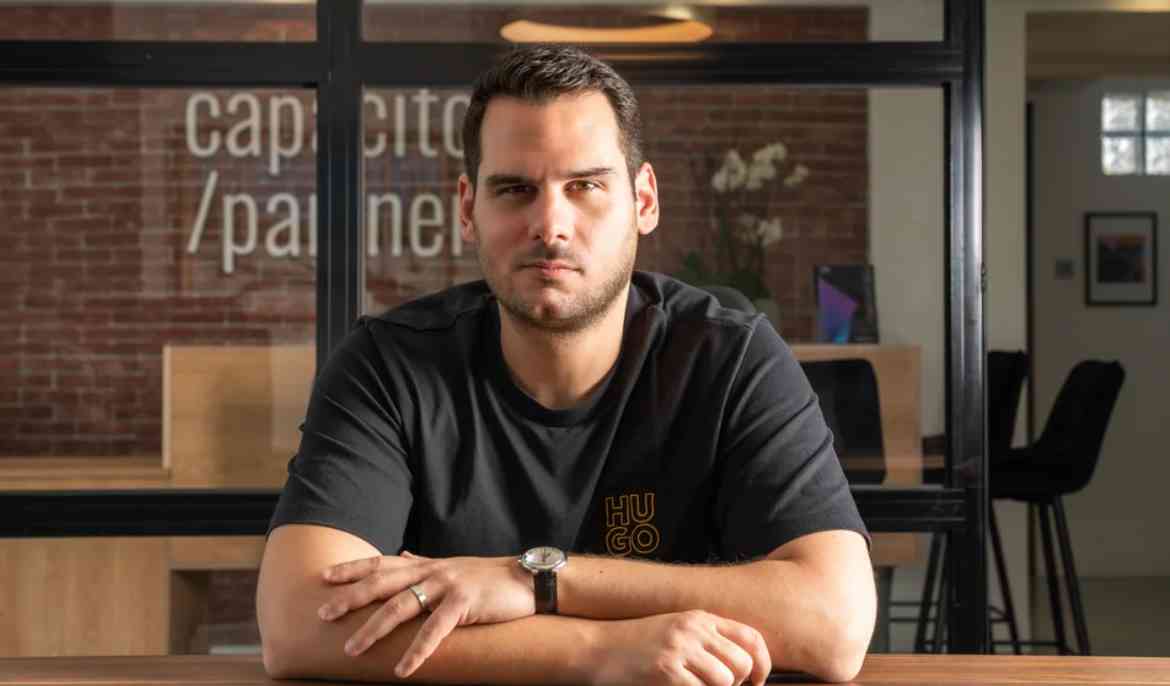Scaling internationally, staying independent, and how Cyprus can build a citizen-first digital future
Founder and Managing Director of Capacitor Partners, Michael Tyrimos, has successfully scaled his consulting firm from a one-person startup to an international enterprise operating across Greece and Malta.
In this interview, Tyrimos shares insights on strategic expansion, the importance of maintaining autonomy by bootstrapping, and how trust serves as the cornerstone of his company’s success. He discusses the challenges and opportunities facing Cyprus’s digital transformation, emphasising the necessity of citizen-focused digital services and robust infrastructure.
Tyrimos also highlights the evolving role of AI in business consulting, noting that human judgment remains irreplaceable despite technological advances. With international recognition, Tyrimos continues to actively shape Cyprus’s growing tech ecosystem. His vision remains firmly rooted in empowering local innovation, fostering a resilient digital landscape and contributing meaningfully to Cyprus’s economic and technological advancement.
You’ve grown Capacitor Partners from a solo founder business to a multi-country firm crossing into Greece and Malta. What strategic choices enabled that expansion?
At Capacitor Partners, our approach was grounded in principle before pursuing strategic expansion.
Rather than immediately looking outward, we focused on internal readiness. We built a strong operational foundation and established ourselves as a trusted advisor in operations and technology transformation for some of the largest companies in the country. We then extended our services to clients hailing from six countries and spanning eleven industry verticals.
Once this credibility was firmly established, we turned our attention to international opportunities. In 2024, we began deploying team members abroad to serve both private and public sector clients abroad, in Malta, Greece, and France (Strasbourg). This marked the start of a more structured international footprint, supported by new projects and further growth of our brand overseas.
You’ve notably bootstrapped the firm and turned down investment offers. What guided that decision and how has it shaped the company?
Launching a firm in the service sector rarely carries the same allure as introducing a new product. However, the path to revenue generation is more immediate. You deliver value, invoice the client, and receive payment. With this in mind, I made a conscious decision to focus on generating income from day one rather than pursuing external funding.
The first two years were challenging. I operated as the sole team member and limited my own salary in order to build internal capital for future hires. By the end of the second year, I initiated the hiring process. As demand increased, so did our team, growing steadily and organically. This consistent growth, paired with a healthy revenue stream, meant there was no reason to seek or accept investment – even when such offers were presented. The company remained entirely self-sufficient.

In a recent interview you highlighted “trust” as the cornerstone of success. How do you actively build and preserve trust with clients across diverse markets?
For me, building trust with clients is grounded in three core principles, which I consistently reinforce across my teams.
First, never overpromise or underdeliver. Setting realistic expectations from the outset builds lasting credibility.
Second, always be proactive. Anticipate challenges and offer solutions before the client needs to raise concerns.
Third, go the extra mile. The focus should always be on delivering meaningful value, not on seeking ways to increase revenue from the client.
When these principles are upheld, you become a trusted partner, an integral part of the client’s team. Trust secures your place in the client’s long-term vision.
Your 2024 public forecasts stressed urgent digitisation in Cyprus’s public sector. What barriers are you seeing now and how can they be overcome?
I believe the greatest challenge to the digital transformation of our country is twofold.
First, we must establish a single point of contact for the citizen. This requires placing the citizen’s digital profile at the centre and seamlessly connecting it to all relevant government services.
This approach was adopted decades ago in countries like Denmark, where the introduction of a citizen ID and public email laid the groundwork for streamlined public service access. We have been seeing this materialise in Cyprus through the ongoing development of gov.cy and the digital citizen.
While there is still significant progress to be made in terms of functionality and user experience, the foundation is finally taking shape. It is encouraging to witness the continuation of efforts first led by former Deputy Minister for Research, Innovation and Digital Policy, Kyriacos Kokkinos and now further developed current Deputy Minister for Research, Innovation and Digital Policy, Nicodemos Damianou and his team.
The second challenge lies in the country’s infrastructure. Despite the formal introduction of a cloud-first policy over five years ago, most systems still avoid cloud deployment. This has resulted in fragmented, vulnerable environments that lack resilience and interoperability. The risks of physical damage or cyber infiltration remain high, as evidenced by past incidents. Looking ahead, we need to embrace a modern, unified digital infrastructure. In my view, the ideal model is Estonia’s X-Road, a public data exchange layer that is both robust and open source. I strongly encourage our government to explore this approach as we aim to build a secure, scalable, and citizen-centric digital state.
Capacitor Partners recently introduced a one-day AIpowered diagnostic to assess client operations. What has been the most surprising insight from that tool?
That no matter how efficiently data is structured or how quickly reports are generated through our AI-powered templates, the human element remains indispensable. Every analysis still requires a second layer of review, particularly when it comes to strategic recommendations. These rely on critical thinking, contextual understanding and the accumulated expertise of our team.
Despite advances in large language models, there remains a tendency for extrapolation, misinterpretation, or overreliance on inferred results. While AI has enhanced the speed of processing, indexing, and aggregating information, it has not replaced our most valuable asset – our ability to think critically and apply sound judgment.
You’ve earned international recognition (O1 visa, Disruptor 40 Under 40). How do those honours influence your vision for Cyprus’s tech ecosystem and your role in it?
My vision for Cyprus’ tech ecosystem – and my role within it – remains unchanged by any honours or awards. Since 2012, when together with a small group of friends we launched the Cypriot Enterprise Link, which gave rise to Hack Cyprus, the country’s first hackathon, and Insights Con, its first startup conference, my goal has always been to give back and help improve our country.
Since then, I have been truly proud to witness the momentum: startups being launched, founders achieving successful exits, investment syndicates and funds being formed, large-scale tech and startup events gaining traction, and the ICT sector becoming a vital contributor to Cyprus’ GDP.
This progress is the realisation of that original vision that belonged to everyone involved in the effort, not just us. Seeing the ecosystem grow and take forward steps remains the greatest reward.


